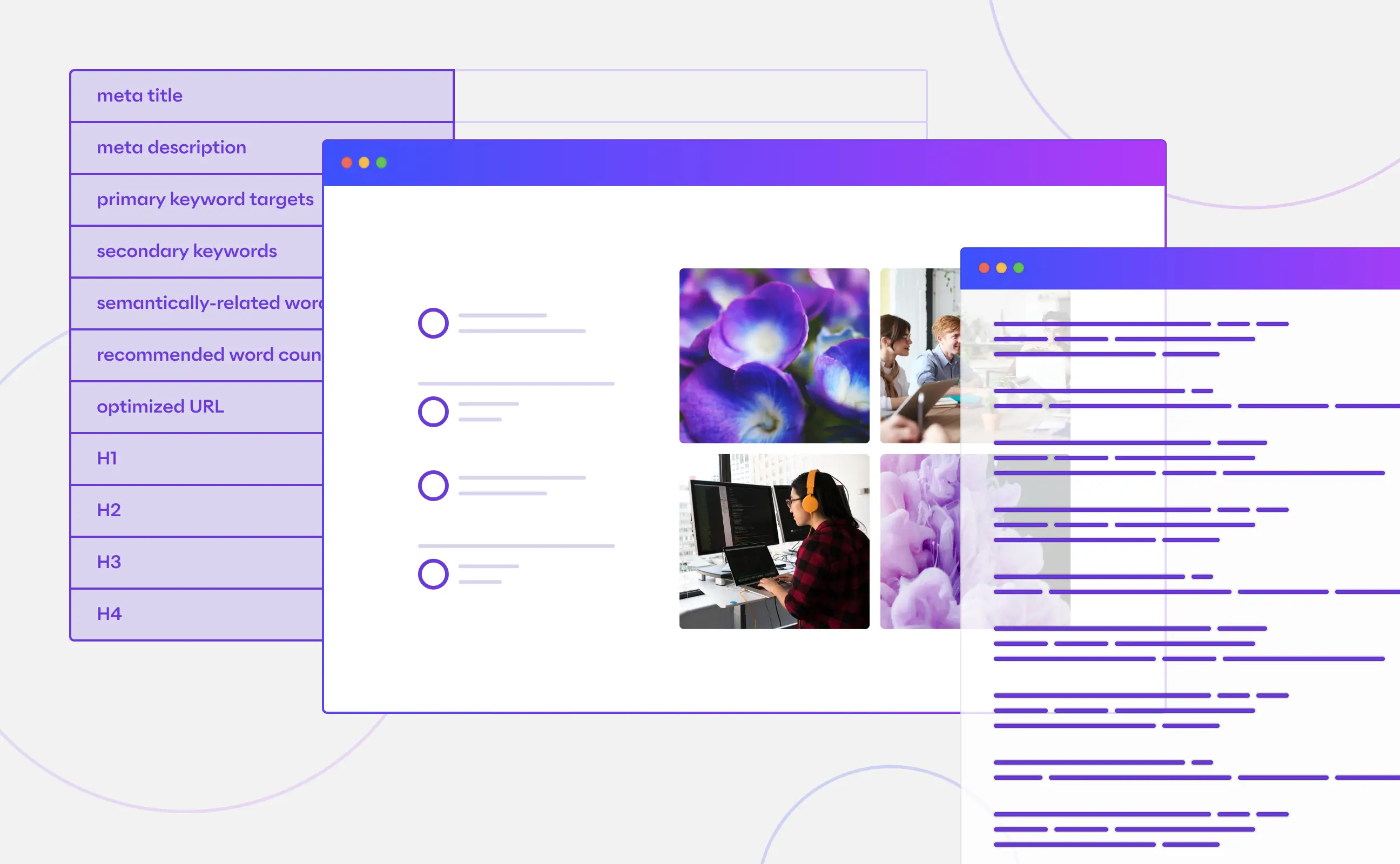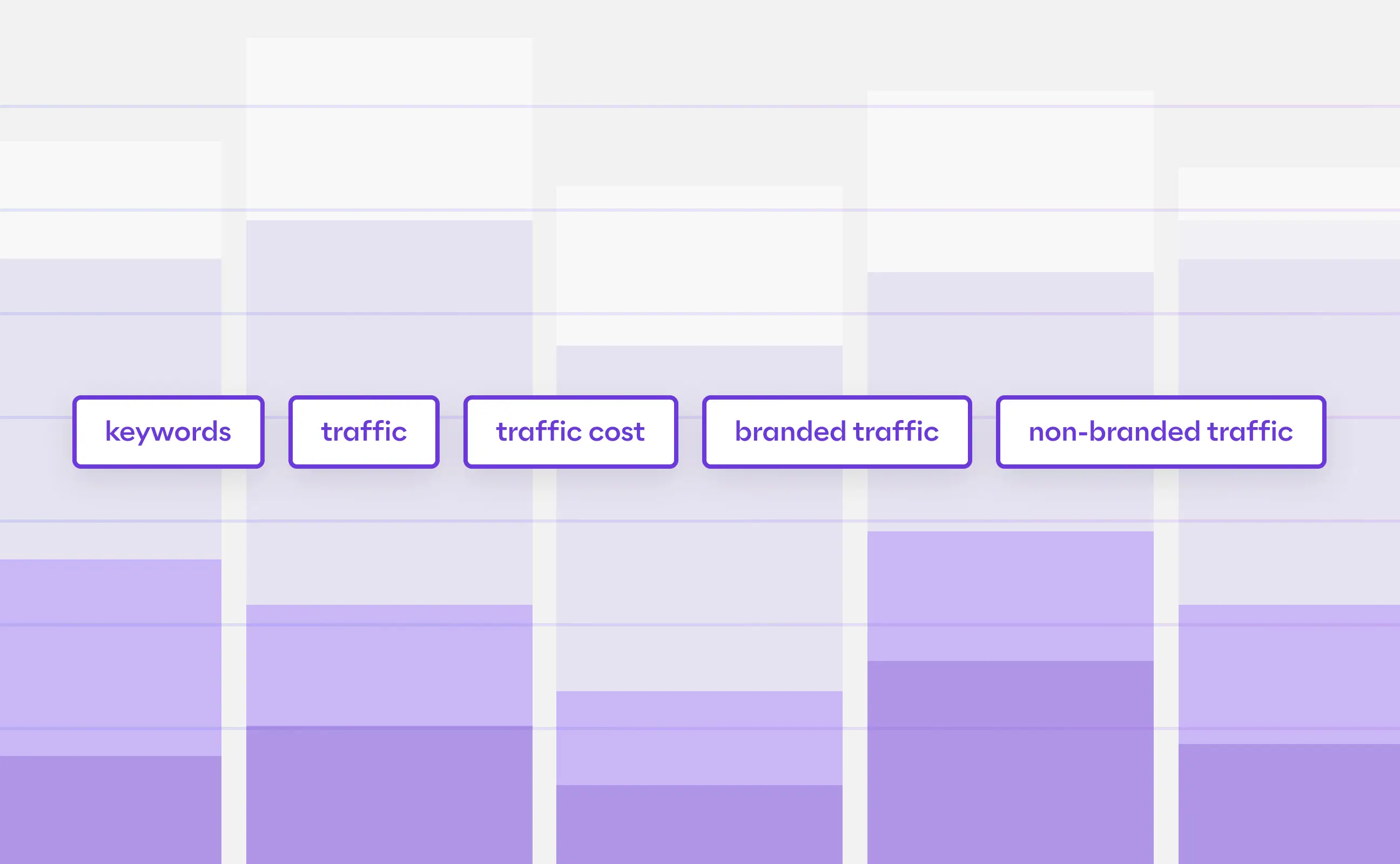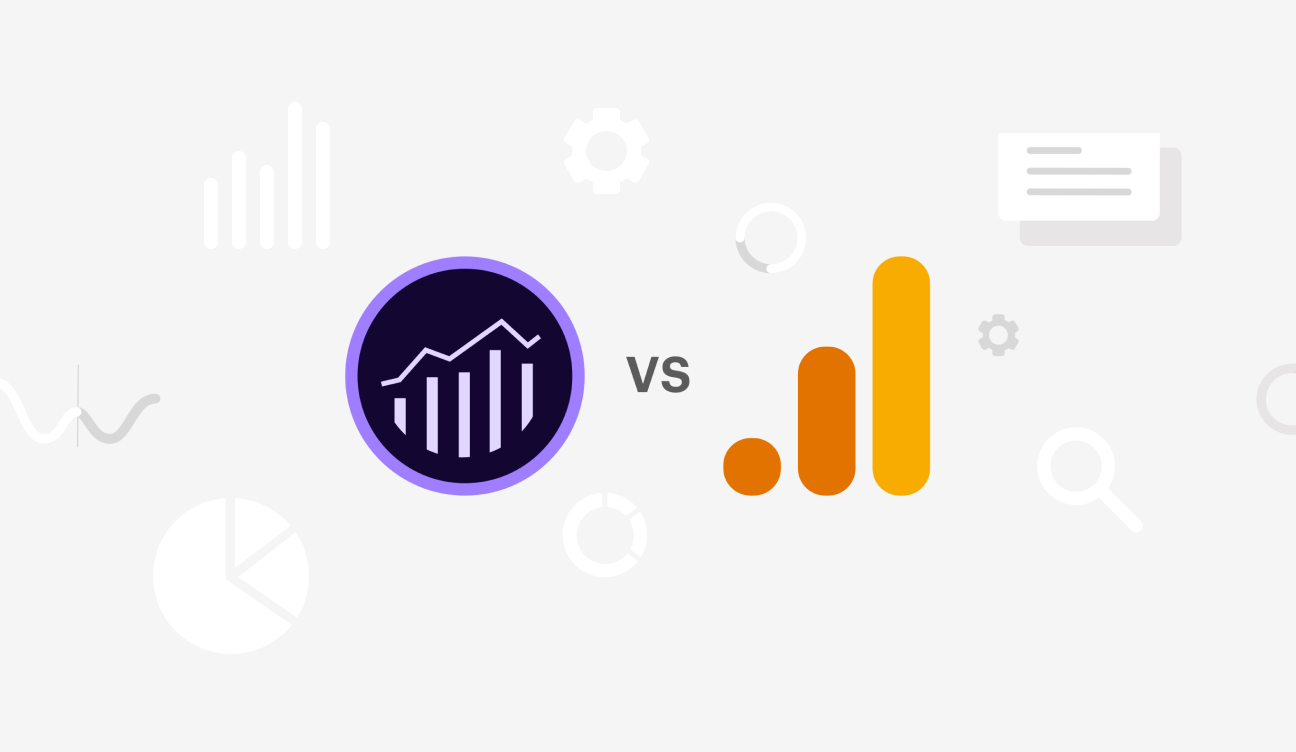
On-Page, Off-Page & Technical SEO Audits
Your site’s ability to rank on the search engine results page helps attract visitors, generate leads, and grow your business. Our comprehensive Search Engine Optimization (SEO) audit services examine your website’s technical, on-page, and off-page optimization. Our SEO audits use powerful tools to analyze the pages on your site for a variety of ranking factors, resulting in improved site health, domain authority, backlink potential, keyword rankings, and organic visibility.
Based on our findings we create a custom SEO strategy to improve your website’s health, optimize for target keywords, and align with SEO best practices.

On-Page SEO Audit
Discover opportunities to optimize your content with our in-on-page SEO audit. We’ll check your keywords, meta titles, meta descriptions, on-page headings, and content to ensure your site follows SEO best practices.
Keyword positions:
Determine which keywords your website is ranking for and identify opportunities to improve rankings for relevant keywords.Branded vs. non-branded traffic:
Analyze your website’s traffic sources to see how much comes from branded and non-branded queries. Branded traffic refers to people who are already familiar with your brand, while non-branded traffic refers to visitors who discover your website through search engines or other channels.Meta titles (title tags):
Evaluate the length, clarity, and keyword relevance of your meta titles. Meta titles should be short, informative, and optimized for keywords.Meta descriptions:
Assess the length, persuasiveness, and keyword usage of your meta descriptions. Meta descriptions should be engaging, informative, and keyword optimized.On-page heading tags (H1, H2, H3):
Analyze on-page headings to ensure they’re sequential and convey content organization and importance effectively. Heading tags should be clear, concise, and optimized for target keywords.URL Structure:
Evaluate the length, clarity, and keyword usage of your URLs. URLs should be clear, memorable, and optimized for keywords.Click depth:
Analyze the number of clicks it takes users to reach important pages on your website. Improve navigation and internal linking to help users find information easily, with fewer clicks to reach important pages.Images (alt text, file names):
Assess the quality, relevance, and optimization of your images. Images should be visually appealing, match the content, and have alt text and file names that help search engines and users.Content readability:
Analyze the readability of your website’s content to ensure it’s easy for your target audience to understand. Consider factors such as sentence length, complexity, and use of images to break up sections of content and enhance user experience.Keyword cannibalization:
A keyword cannibalization report helps you identify when your website uses the same keyword on multiple pages. Keyword cannibalization can confuse search engines and harm your rankings.Competitor keyword gap:
Analyze your competitors’ keyword rankings to identify opportunities for your website.

Technical SEO Audit
By analyzing your website’s code, structure, and functionality, our technical SEO audit services provide you with actionable insights to improve your site’s technical health and rankings.
Site structure:
Evaluate the overall structure of your website to ensure it is clear, logical, and easy to navigate.Duplicate Content:
Identify duplicate content across your website. Duplicate pages compete against each other and can negatively impact your search engine rankings.Schema Markup:
Evaluate the implementation of schema markup on your website. Schema markup is a type of structured data that helps search engines understand the content and meaning of your website’s pages. Proper schema markup can improve search results snippets and attract more targeted visitors.XML Sitemap:
Verify that your website has an up-to-date XML sitemap. An XML sitemap provides search engines with a clear map of your website’s structure and content, making it easier for them to crawl and index your pages effectively.Robots.txt:
Analyze your robots.txt file to ensure it is correctly configured and not blocking search engines from accessing important pages. The robots.txt file instructs search engine crawlers which pages on your website to index and which to ignore.Security (SSL):
Verify that your website uses a valid SSL certificate to secure user data and maintain a secure connection. SSL certificates encrypt data transmitted between your website and visitors’ browsers, protecting sensitive information and ensuring a secure browsing experience.Core Web Vitals:
Assess your website’s performance against Google’s Core Web Vitals metrics, which measure key aspects of user experience, such as the speed your pages load, interactivity, and visual stability. Optimizing your Core Web Vitals can improve user experience and search engine rankings and has been part of Google’s ranking algorithm since the Page Experience update in 2021.HTTPS:
Ensure your website uses HTTPS, the secure version of the HTTP protocol. HTTPS protects user data and ensures a secure connection, which is essential for building trust and maintaining a positive reputation.Mobile-Friendliness:
Evaluate your website’s mobile-friendliness to ensure it provides a seamless user experience on mobile devices.Broken Links:
Identify and fix broken links throughout your website. Broken links can frustrate users and hinder search engine crawling.Permanent Redirect Issues & Loops:
Verify that all permanent redirects are implemented correctly to avoid redirect loops and ensure proper page redirection. Redirect loops can confuse search engines and lead to indexing issues.Redirect Chains:
Eliminate redirect chains, which occur when you redirect a page to another page that is already redirected, creating a loop. Redirect chains can lead to indexing issues.Internal linking:
Evaluate the structure and effectiveness of your website’s internal linking. Internal links help search engines understand the structure of your website while distributing link value.Canonicals:
Mitigate duplicate content by assigning canonical tags. We also check for self-referencing canonical tags to align with best practices.Indexability:
Verify that search engines can index your website’s pages. If pages are not indexed, they will not appear in search results.

Off-Page SEO Audit
Off-page SEO plays a central role in establishing your website’s authority, credibility, and relevance. Our comprehensive off-page SEO audits analyze your backlink profile, directory citations, and Google Business Profiles.
Backlink profile:
Analyze the quality and diversity of your backlinks. Backlinks, an important ranking factor, are links from other websites back to your website.Referring Domains:
Determine the total number of unique referring domains that link to your website. High-quality referring domain links are considered more valuable than links from subdomains, as they indicate a broader reach and wider recognition.Backlink types and anchor text:
Analyze the types and anchor text of your backlinks.Domain rank:
Assess your website’s domain rank, also known as Domain Authority, which is a measure of the overall authority and trustworthiness of your domain.Reputation management:
Assess your online reputation and identify any negative mentions or reviews that may be impacting your rankings.Citation directories:
Verify that your website is listed in relevant citation directories. Citation directories are online databases that list businesses and organizations.Online reviews and responses:
We take a holistic look at how well and frequently your business is responding to online reviews.Google Business Profiles:
Evaluate your Google Business Profiles to ensure all are fully optimized, including proper NAP formatting, website links, primary and secondary categories, and more.
SEO Audit Tools
We know that one tool is never enough to fully evaluate your website’s organic strength. In addition to manual review, our SEO experts use a variety of SEO tools to audit your website.
- Screaming Frog SEO Spider
- Semrush
- GT Metrix
- Google Search Console
- Google Analytics
- SEO Site Checker
- DNSlytics
- Check-Host
- DupliChecker
- PageSpeed Insights
- Schema Markup Validator
- Rich Test Results
- Google’s Mobile Friendly Test
Ready to Increase Your Organic Traffic & Visibility?
Our experienced SEO team can help your business identify and create a plan to fix any issues that are preventing your website from reaching its full potential. Contact us today to learn how we can help increase your organic presence.

Let’s Start a Conversation
Reach out to discuss your digital transformation needs and see how we can help. We would love to start a long-term partnership with your company.
Get in Touch


